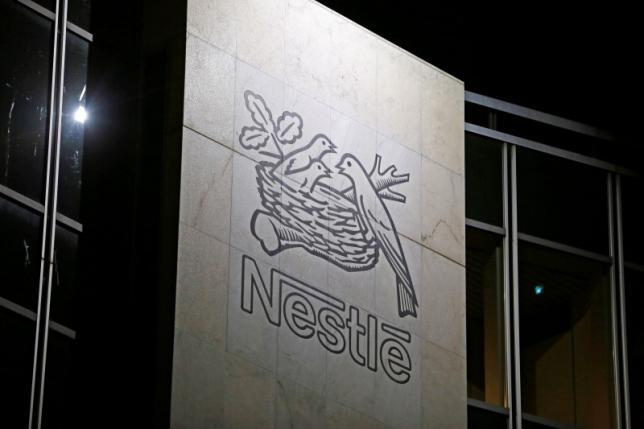Nestle (NESN.S), the world’s biggest food company, is stepping up its push into medicine with a global deal worth up to 100 million euros ($111 million) to develop and market an experimental milk allergy test for infants.
The Swiss group will pay DBV Technologies (DBV.PA) 10 million euros upfront for rights to its skin patch test for cow’s milk protein allergy, with the balance depending on successful development, the two companies said on Tuesday.
Shares in the Franco-American biotech company had risen 6 percent to 61.30 euros on the news by 0800 GMT.
The deal underscores Nestle’s ambitions for its Health Science division, which it believes could eventually generate more than 10 billion Swiss francs ($10 billion) in annual sales.
It also complements the company’s infant formula business and could help lift sales of formula for babies with food intolerance.
Nestle has signed a series of similar deals with other small companies in its bid to create a new kind business that is midway between food and pharmaceuticals. The goal is to find new ways to treat, diagnose and prevent a range of diseases, from gastrointestinal problems to Alzheimer’s.
An allergy to cow’s milk affects up to 2 or 3 percent of infants and toddlers, according to the companies. Many others, however, have symptoms suggestive of the condition, creating a need for a simple diagnostic test.
Under the terms of the agreement DBV will be eligible to receive up to 90 million euros in development, regulatory and commercial milestones – on top of the upfront payment – and will also collect royalties on eventual product sales.
The new test will need to go through extensive clinical trials before it is cleared for sale and DBV expects it to be submitted for approval to regulators worldwide by 2021.
Nestle Health Science, which employs around 3,000 people, is an expanding part of the Swiss group’s operations.
Given ageing populations around the world and spiraling cases of lifestyle diseases, Nestle sees big opportunities in health – but the initiative also poses new challenges, since it takes Nestle into the highly regulated medical field.
Strategically the shift towards health offers Nestle a hedge against slowing growth in packaged foods and may also offset crackdowns on unhealthy foods blamed for obesity and other lifestyle problems.
For DBV the deal is a vindication of its Viaskin patch technology. The company has another test for peanut allergy in clinical trials, as well as an earlier-stage program for egg allergy.
Source: REUTERS











